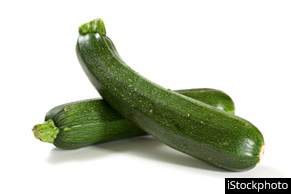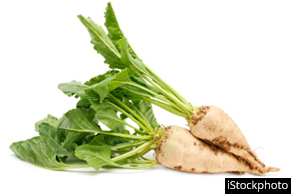This week headlines about GMOs (Genetically Modified Organisms) splashed all over major media outlets across the country. This media firestorm was in response to a new report released by Consumer Reports regarding GMOs in American food products. This report finally shared what I have thought all along: Non-labeled food products most likely contain GMOs if the ingredients include a corn or soy byproduct.
Before I get into the shocking results of the report, I want to share with you why I personally try to avoid GMOs in my diet:
- There are no mandatory safety assessments required before GMOs are introduced into our food system.
- GMOs have contributed to more toxic pesticide usage since their inception. I want the pollution of our earth to stop. The types of environmental chemicals we are being exposed to are what the President’s Cancer Panel says will destine 41% of us to get cancer in our lifetime.
- There are no long term human studies to prove GMOs are safe.
- GMOs are responsible for killing bee colonies. Without bees, we are in big trouble.
- I could go on with more reasons, but one in particular is very personal. I used to suffer from some of the worst allergies. I have been hospitalized multiple times because of them. I used to be on several prescription drugs to control them too. When I removed GMOs from my diet, eating a majority of organic whole, unprocessed foods, my allergies vanished and was able to stop taking all my prescription medications. I feel like I have ten times more energy now and feel incredible. For this reason alone, I take avoiding GMOs very seriously.
GMOs are running rampant in our food supply
Earlier this year, the Consumer Reports Food Safety and Sustainability Center sent out secret shoppers to purchase more than 80 processed food products in New York and Seattle, which included a wide range of products all containing corn or soy ingredients: breakfast cereals, bars, corn chips, corn tortillas, baking mixes and flours, baby formulas, meat substitutes, soy “dairy” products, and tofu/tempeh products. Then, they tested these products to see if they contained any GMO ingredients, and if so, how much. This is important because the overwhelming majority of processed food in America contains corn or soy ingredients, which are also the most prevalent genetically modified crops, yet most major food manufacturers are strongly against labeling GMO ingredients. We are being left in the dark in this country, and virtually the only way to know whether a product contains GMOs is to have it tested – and that’s exactly what Consumer Reports did.
What I love about their report is that Consumer Reports essentially just slapped a big fat GMO label on a few dozen everyday food products here in America, including many that are considered “Natural” and healthy. The manufacturers of these foods do not want you to know that their products contain GMOs and have collectively spent millions of dollars to fight against labeling laws, depriving us of our right to know. This is outrageous considering that 92% of American consumers want GMO labels on food and are becoming increasingly aware of how prevalent GMOs have become in our food supply.

The “Natural” Label: It’s a sham.
Consumer Reports tested several products that are labeled as “Natural” because they found that the majority of Americans still believe that the “Natural” label means that they are non-GMO. As I’ve written about in the past, the word “Natural” on a product means absolutely nothing in regards to GMOs - the FDA has failed to define the use of this term which allows food manufacturers to deceptively label their products as “Natural” to trick us into thinking their product is better than the others on the shelf. Consumer Reports notes that, “Consumers who want to avoid GE ingredients should not rely on products labeled “natural” to avoid GMOs. This label is highly confusing and generally misleading for consumers and Consumer Reports is asking the government to ban its use on food”. They should - because GMOs are not natural. As put by the Institute for Responsible Technology:
“A GMO (genetically modified organism) is the result of a laboratory process where genes from the DNA of one species are extracted and artificially forced into the genes of an unrelated plant or animal. The foreign genes may come from bacteria, viruses, insects, animals or even humans… With genetic engineering, scientists can breach species barriers set up by nature. For example, they have spliced fish genes into tomatoes. The results are plants (or animals) with traits that would be virtually impossible to obtain with natural processes, such as crossbreeding or grafting.”
Yet, GMOs remain in “Natural” foods all over the country.
Consumer Reports found that some “Natural” products contained similar amounts of GMOs as their counterparts without a natural label. For instance, they found substantial quantities of GMO corn or GMO soy in popular “Natural” foods such as Kashi GoLean Honey & Cinnamon hot cereal (owned by Kellogg’s), Utz All Natural Multigrain Tortillas, and Nature Valley Crunchy Oats ‘N Honey Granola Bars (owned by General Mills).

From Consumer Reports – Products guilty of using GMOs (A-Z):
Betty Crocker Authentic Cornbread & Muffin Mix
Boca Original Vegan Veggie Burgers
Corn Tortillas/Tortilla Flour
Doritos Oven Baked Nacho Cheese
Enfamil ProSobee Soy Infant Formula
General Mills Cocoa Puffs
General Mills Corn Chex
General Mills Kix
General Mills Trix
Gerber Good Start Soy
Jiffy Corn Muffin Mix
Kashi GoLean (in the process of of getting Non-GMO project verified)
Kashi GoLean Hearty Honey & Cinnamon (Hot Cereal)
Kellogg’s Froot Loops
Kellogg’s Special K Protein Chocolatey Peanut Butter Granola Snack Bar
Krusteaz Natural Honey Cornbread & Muffin Mix
La Banderita Corn Tortillas
Maseca Instant Corn Masa Flour
Mission White Corn Tortillas
Mission Yellow Corn Tortillas
MorningStar Farms Chik’n Nuggets
MorningStar Farms Grillers California Turk’y Burger
Nature Valley Crunchy Oats ‘N Honey Granola Bars
Nature Valley Protein Peanut Butter Dark Chocolate Chewy Bar
Nice! Oats & Honey Crunchy Granola Bar (Walgreens)
Old El Paso Crunchy Taco Shells
Ortega Yellow Corn Taco Shells
PowerBar Performance Energy Chocolate Peanut Butter
Quaker Life Original
Quaker Yellow Corn Meal
Similac Go & Grow Soy Infant Formula
Similac Soy Isomil
Snyder’s of Hanover Yellow Corn Tortilla Chips
Tostitos Multigrain Tortilla Chips
Utz All Natural Multigrain Tortillas (some lots tested were non-GMO)
Xochitl Totopos de Maíz (labeling claim “No GMO”)
Boca Original Vegan Veggie Burgers
Corn Tortillas/Tortilla Flour
Doritos Oven Baked Nacho Cheese
Enfamil ProSobee Soy Infant Formula
General Mills Cocoa Puffs
General Mills Corn Chex
General Mills Kix
General Mills Trix
Gerber Good Start Soy
Jiffy Corn Muffin Mix
Kashi GoLean (in the process of of getting Non-GMO project verified)
Kashi GoLean Hearty Honey & Cinnamon (Hot Cereal)
Kellogg’s Froot Loops
Kellogg’s Special K Protein Chocolatey Peanut Butter Granola Snack Bar
Krusteaz Natural Honey Cornbread & Muffin Mix
La Banderita Corn Tortillas
Maseca Instant Corn Masa Flour
Mission White Corn Tortillas
Mission Yellow Corn Tortillas
MorningStar Farms Chik’n Nuggets
MorningStar Farms Grillers California Turk’y Burger
Nature Valley Crunchy Oats ‘N Honey Granola Bars
Nature Valley Protein Peanut Butter Dark Chocolate Chewy Bar
Nice! Oats & Honey Crunchy Granola Bar (Walgreens)
Old El Paso Crunchy Taco Shells
Ortega Yellow Corn Taco Shells
PowerBar Performance Energy Chocolate Peanut Butter
Quaker Life Original
Quaker Yellow Corn Meal
Similac Go & Grow Soy Infant Formula
Similac Soy Isomil
Snyder’s of Hanover Yellow Corn Tortilla Chips
Tostitos Multigrain Tortilla Chips
Utz All Natural Multigrain Tortillas (some lots tested were non-GMO)
Xochitl Totopos de Maíz (labeling claim “No GMO”)
See the complete report here and the final results here.

Just because it seems healthy doesn’t make it non-GMO.
Several products that many people think of as healthy (even without a “Natural” label) tested positive for GMOs, like Quaker Life Original cereal, PowerBar Performance Energy Chocolate Peanut Butter bars, MorningStar Farms Grillers California Turk’y burgers, and Boca Original Vegan Veggie Burgers. Most disturbingly, all soy-based infant formulas they tested (that are not labeled organic) are made with GMO soy, which included Enfamil Prosobee, Gerber Good Start, Similac Go and Grow, and Similac Soy Isomil. If you are looking for the safest baby formula, be sure to check out this full investigation.
Unverified Non-GMO claims: Don’t fall for it.
One of the most shocking things that Consumer Reports uncovered is that Xochitl Totopos de Maiz original corn chips (the non-organic variety) contain on average more than 75% GMO corn, although they claim right on the front of the bag that they contain no GMOs. Consumer Reports tested 6 packages of non-organic Xochitl chips from different lots and found GMOs in every single one. These chips aren’t verified by the Non-GMO project, but they contain the misleading statements “All Natural” and “No GMO” on the package. This just goes to show that because there are no regulations in place to ensure that non-verified claims can be trusted, the only way to be certain that you’re avoiding GMOs is to look for the verified seal or 100% certified organic food. Most of the products that Consumer Reports tested without a Non-GMO Project Verified or Certified Organic label contained GMO ingredients - with few exceptions. Consumer Reports concluded that the “USDA Organic” and “Non-GMO Project” seal is reliable. This is why I do not purchase products that contain high-risk GMO ingredients without a 100% certified organic or Non-GMO Project Verified label.
Tips to use this information and avoid GMOs at the grocery store:
- Never buy products purely based on “Natural” or “100% All Natural” label claims.
- Look for 100% Certified USDA Organic labels on food.
- Don’t blindly trust a non-GMO ingredient label claim that is not verified with a Non-GMO project seal or verification of 3rd party testing or certified organic.
- Read ingredient labels and watch out for this list of common GMO ingredients, particularly anything derived from corn, soy, canola, cottonseed, sugar beets, papaya, zucchini and squash.
- Do not buy any products that Consumer Reports verified contains GMOs (see the complete list from their report above).
Consumer Reports supports mandatory GMO labeling
“Despite this consumer demand, there are no requirements for labeling genetically engineered ingredients in processed foods and there is extremely limited safety testing required. Without labeling, there is a lack of transparency in the marketplace and Consumers’ Union, the policy and advocacy arm of Consumer Reports, is actively engaged in a campaign to have foods with GE ingredients (also known as Genetically Modified Organisms or GMOs) labeled. In the meantime, consumers are unable to make informed purchasing decisions”.
Consumer Reports dispel many of the myths (and lies) circulating about GMOs, such as:
- GMOs are necessary to feed the world (FALSE)
“it is interesting to note that the world already produces more than enough food to feed all its inhabitants. Hunger, whether in the US and or other parts of the world, is not caused by an insufficient quantity of food being grown. Rather it is caused by disparities in wealth, waste, wars, and market inefficiencies… Looking at the long term outlook, GE foods may actually threaten food availability and increase food costs”.
- GMOs are required to undergo pre-market safety testing by the FDA (FALSE)
“FDA, which regulates food safety, does not require any safety assessment of the GE crops, but invites companies to provide data for a voluntary safety review. This is in contrast to other major economies such as European Union, Australia, Japan, and China, which all require that a premarket mandatory safety assessment of GE crops is conducted”
- GMOs are safe for the environment (FALSE)
“GE crops can have a significant negative impact on the environment. Although the industry often claims that GE crops reduce pesticide use, in fact the opposite is true… The vast increase in herbicide use, especially glyphosate (trade name RoundUp), has caused weeds to become resistant to them, and this chemical is losing its effectiveness… In addition, studies suggest that glyphosate-tolerant crops and the use of glyphosate are likely more responsible for the large decline in monarch butterfly populations than are declines in the overwintering habitat in Mexico, since this herbicide use is wiping out most of the milkweed, which the Monarch butterfly depends on for food.”
- GMOs have been proven safe to eat (FALSE)
“There is global scientific agreement that genetic engineering has the potential to introduce allergens and toxins in food crops, to change the nutritional value, and to create other unintended changes that may affect human health.”
The tide is beginning to turn in this country – I can feel it!
The more knowledgeable we become about the use of GMOs in our food, the more quickly we will get transparency. When we voice our opinion to these companies, they have proven time and again that they are willing to change – and they have. Consumer Reports noted that, “between testing and publishing of this report, that there were manufacturers who were obtaining or obtained Non-GMO Project Verified certification. This demonstrates an actively changing market that seems to be responding to consumer demand.” There are few things you can do to help keep this moving in the right direction:
- If you live in Oregon or Colorado, cast your vote in favor of GMO labeling this November. More information can be found on the Oregon Right to Know and the Colorado Right to Know websites.
- If you know someone who lives in Oregon or Colorado, call them, facebook them, tweet them or go visit them and ask them to cast their vote in favor of GMO labeling.
- If you live elsewhere, contact your state legislators and tell them you support mandatory labeling of GMO food.
- Join the Food Babe Army here - it’s completely free and you’ll be the first to know about any new investigations.
- Spread the word by sharing this post with everyone you know.
Thank you for your commitment to a more transparent food system.
We have the right to know what we are eating!
Vani
(Food Babe)
(Food Babe)
Featured Product:
(available in 2 sizes)
(available in 2 sizes)









